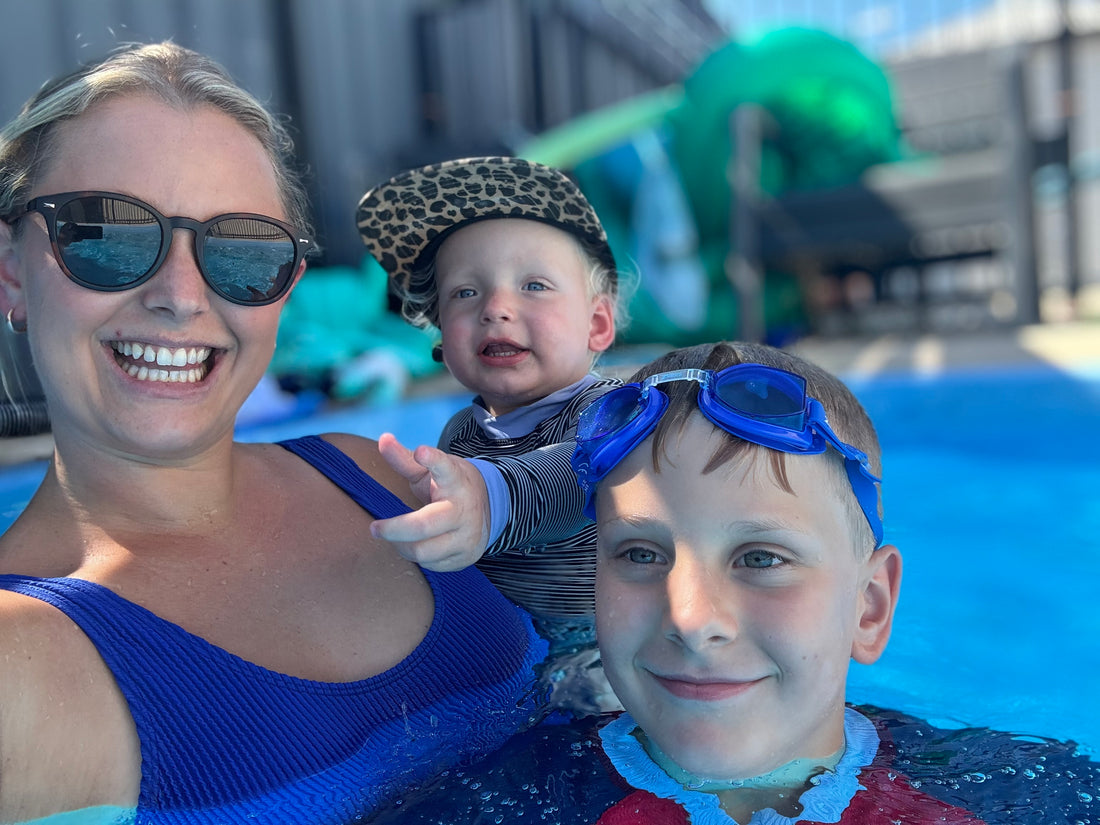
Navigating Neurodiversity: A Parent's Journey Through Judgment and Understanding
Share
As a parent of a neurodiverse child and being neurodiverse myself, I'm no stranger to a diverse range of opinions and judgments. These come in so many forms and about so many topics, from complete strangers to the people closest to us. My journey with my eldest child's ADHD diagnosis has been eye-opening, challenging, and ultimately, empowering.
Early Diagnosis and Initial Reactions
When my eldest, Elliot, received his combined ADHD diagnosis at just 4.5 years old, six months before starting school, I wasn't surprised. My background in Early Childhood Education, coupled with the incredible educators at his daycare centre, had prepared me for this outcome. However, this early diagnosis - uncommon for his age - did raise eyebrows and spark discussions.
While I'm not a medical professional, I've learned that early identification and support for ADHD can make a significant difference in a child's development, including their academic performance and social skills.
Building a Support Network
We were extremely lucky to quickly start building our allied health team with a behavior therapist who we still see today and a wonderful OT. As a team, we made the decision that while he was in daycare, there was enough movement and support that medication was not required. We began working on his executive functioning and emotional regulation skills through therapy.
The Medication Dilemma
The decision to explore medication was our first significant encounter with external judgment. As Elliot transitioned to school, it became very clear, very quickly, that he was unable to participate in a classroom environment, nor access the same educational opportunities as his peers.
Cue opinions and judgment. As if there wasn't enough to-and-fro happening in my own head around this huge decision. I had lengthy discussions with many of our support network and professionals and decided that for us, this was the path we needed to take.
Now, if medication for ADHD isn't something you know much about, some of the common misconceptions are things like it dulls their personality, changes who they are, and many other things. These were exactly the things that frightened me, along with the health considerations while taking a stimulant medication.
For Elliot, the benefits of medication were indescribable. I think that's a whole other blog to be written.
Confronting Stereotypes and Misunderstandings
One of the most challenging aspects of parenting a neurodiverse child is confronting the stereotype that children with ADHD are just naughty. The judgment that comes from others when my little one has big feelings, outbursts, or meltdowns can trigger such fear and anxiety as a parent when doing everyday things like shopping, parties, and simply going to the park.
It's important to understand that these behaviors aren't willful disobedience but rather manifestations of how their brains work differently.
The Impact of an Autism Diagnosis
When Elliot received his Autism diagnosis, I wasn't concerned because I thought there was something wrong with my child. What I feared was the judgment and pity from others when communicating this diagnosis, how people would now see him.
Understanding Neurodiversity
The diagnosis my child has means that his brain pathways are different. They don't connect as well as the 'normal' - whatever that even is - person. The brain tends to drop things off that it doesn't feel it needs to prevent it from being overloaded.
Tailoring Parenting Approaches
For Elliot, this means being very specific in our communications. Rather than general reprimands, we focus on explaining exactly what went wrong in a situation and collaboratively exploring alternative behaviors or reactions.
The Power of Understanding and Inclusion
As parents and community members, we have a responsibility to foster understanding and inclusion. Here are some ways we can all contribute to a more inclusive society:
- Educate ourselves and others about neurodevelopmental conditions.
- Approach situations with empathy rather than judgment.
- Speak up when we witness misunderstandings or exclusion.
- Encourage our children to be inclusive and understanding of differences.
Remember, the best thing you can do for a child and parent, neurodiverse or not, is to approach every situation with kindness and understanding. Remove your judgment entirely, but don't dismiss incidents. Speak up, because doing so gives us as parents the opportunity for a learning moment with our child.
It's time that parents and children who already have so much on their plate are supported, not judged and certainly not excluded from opportunities because our brains work a little differently to yours.
The Importance of Open Communication
When incidents occur involving neurodiverse children, it's crucial to approach the situation with kindness and understanding. However, it's equally important not to dismiss these incidents. By bringing them to the attention of the child's parents, you're providing an invaluable opportunity for learning and growth.
Why? Because not doing so robs us as parents of the opportunity for a learning moment with our child. We don't get the chance to support them in the way they need or give them a real-life, in-the-moment chance to understand something they are currently struggling with.
Breaking Down Barriers
It's time to break down the barriers of misunderstanding and exclusion that often surround neurodiversity. As parents, educators, and community members, we can contribute to this inclusion by:
- Talking openly about Autism, ADHD, or any hidden disability with our children.
- Challenging our own biases and preconceptions.
- Advocating for inclusive practices in schools and community organizations.
- Celebrating the unique strengths and perspectives that neurodiverse individuals bring to our communities.
Don't tell your child not to play with neurodiverse children. As a parent, I know when my child needs space and have no problem communicating that interacting with him right now might not be best for everyone involved. Instead, use these moments as opportunities to teach your children about acceptance and understanding.
Parenting a neurodiverse child is a journey filled with challenges, but also with immense joy and learning. By embracing neurodiversity and fostering understanding, we can create a world where all children, regardless of how their brains are wired, can thrive and reach their full potential.
Remember, every child is unique, whether they're neurodiverse or neurotypical. Our role as parents and community members is to support, understand, and celebrate these differences, creating a more inclusive and compassionate world for all.
One thing this journey has taught me is to never jump to the conclusion that my child has been hurt or teased because the other child is bad or naughty. I always come from a place of understanding and sympathy for the other child and their family. Because I know firsthand that the person who feels the most when faced with challenges from their child is the child themselves and the parent.
Let's work together to create a world where neurodiversity is understood, accepted, and celebrated. A world where our children can grow, learn, and thrive, regardless of how their brains are wired. Because at the end of the day, isn't that what we all want for our kids?
